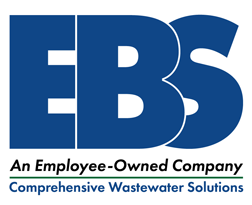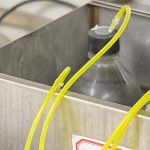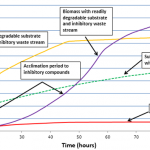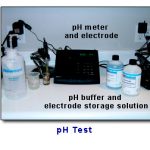Pulp and Paper
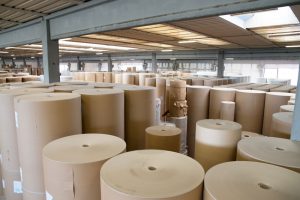 Within our Pulp and Paper testing suite, AAL offers two test groups unique to the Pulp and Paper industry. Terpenes and Resin Acids are two chemical classes found naturally in trees. Turpentine, which consists of terpenes such as alpha-Pinene and beta-Pinene, can pose significant risks to biomass health and affect wastewater treatment. Resin acids, which are insoluble in water, serve as a protectant and preservative for wood to defend against microbial and fungal pathogens. These characteristics can make Resin Acids highly toxic to WET testing organisms, resulting in WET testing failures.
Within our Pulp and Paper testing suite, AAL offers two test groups unique to the Pulp and Paper industry. Terpenes and Resin Acids are two chemical classes found naturally in trees. Turpentine, which consists of terpenes such as alpha-Pinene and beta-Pinene, can pose significant risks to biomass health and affect wastewater treatment. Resin acids, which are insoluble in water, serve as a protectant and preservative for wood to defend against microbial and fungal pathogens. These characteristics can make Resin Acids highly toxic to WET testing organisms, resulting in WET testing failures.
Food and Beverage
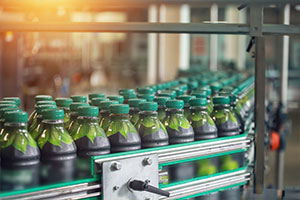 Long Chain Fatty Acids (LCFAs) and Reduced Sulfur Compounds and Volatile Fatty Acids (VFA) are unique compound classes for those systems that treat wastewater from Food and Beverage processing streams. LCFAs are long–chain organic acids that can disrupt microbiological activity and lead to system inhibition or toxicity by negatively affecting the nutrient exchange between the bulk water and the microorganisms. Reduced Sulfur Compounds are important due to the odor and associated safety risk of these volatile chemicals. Volatile fatty acids (VFAs) are crucial in biological phosphorus removal (BPR).
Long Chain Fatty Acids (LCFAs) and Reduced Sulfur Compounds and Volatile Fatty Acids (VFA) are unique compound classes for those systems that treat wastewater from Food and Beverage processing streams. LCFAs are long–chain organic acids that can disrupt microbiological activity and lead to system inhibition or toxicity by negatively affecting the nutrient exchange between the bulk water and the microorganisms. Reduced Sulfur Compounds are important due to the odor and associated safety risk of these volatile chemicals. Volatile fatty acids (VFAs) are crucial in biological phosphorus removal (BPR).
For systems regulated for phosphorus reduction, keeping track of volatile fatty acids (VFAs) enhances the management of the (BPR) process, which helps fine-tune the overall functionality of the treatment process.
Refinery
Several compound classes unique to petrochemical refinery processes are Polyaromatic Hydrocarbons (PAHs), Gasoline Range Organics (GRO), Diesel Range Organics (DRO), and BTEX compounds. These compounds typically form from the refining process. As these compounds enter the wastewater treatment system, treatment can be negatively impacted with high concentrations. For several of these compounds, the EPA has limited the amount that can be discharged to the receiving body of water due to the known carcinogen potential.
